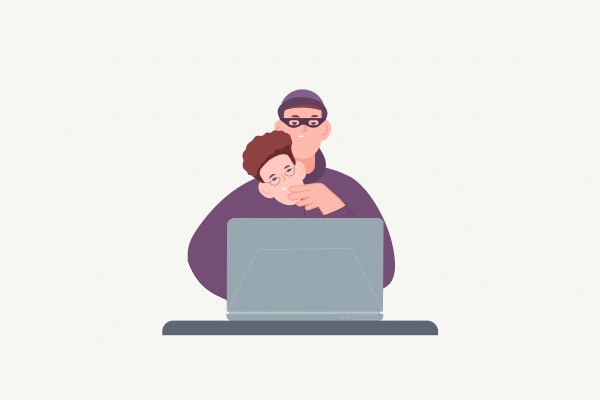
The internet has made life more convenient, but it’s also opened the door to scammers and cybercriminals worldwide. These digital crooks are always finding new ways to get their hands on your hard-earned money or steal your identity. From applying for loans and credit cards to filing fraudulent tax returns and making purchases with stolen information, they have plenty of tricks up their sleeves.
In 2024, it’s more important than ever to stay vigilant. Scammers are evolving, so should your defenses. Let’s break down some of their tactics and what you can do to protect yourself from becoming the next victim.
🛡️Identity Theft in 2024: Keep Your Information Safe
Identity thieves still seek the same things—your name, Social Security number, and birth date—but they’re getting sneakier about it. Be cautious about where and when you share this info, and always question why someone needs it. Fewer places with access to your ID means fewer chances for it to be stolen.
Think of your personal information like cash—don’t give it away freely. Scammers use Social Security numbers, credit card details, and even utility accounts to steal your money or open new lines of credit. So, the next time you’re asked for personal information, ask yourself: “Is this necessary?”
Tax Fraud is Still on the Rise
Cybercriminals frequently use stolen IDs to file fraudulent tax returns, cashing in on refunds like the earned income tax credit or the child tax credit. This leaves you dealing with the IRS and their identity theft protocols—not fun. Make sure to monitor your tax accounts closely and be on the lookout for suspicious activity.
What’s in Your Wallet (or Purse)?
Think beyond cash and credit cards. If your wallet or purse gets stolen, what else might be at risk? A driver’s license is like giving away two-thirds of your identity. If your Social Security card is in there, you’ve just handed over the complete package to a potential thief. So, keep your essentials to a minimum and leave those identity goldmines at home.
Beware of Phishing Scams
The classic phishing scam is still one of the easiest ways for criminals to get their hands on your sensitive info. These scams come through emails, texts, or calls posing as legit organizations like banks or even the IRS. Always be skeptical of requests asking for passwords, Social Security numbers, or banking details. Remember, companies won’t ask you for that info via email or phone.
💡 Online Safety: Stay One Step Ahead
Here’s a basic rule for 2024: If it sounds too good to be true, it probably is. Whether it’s an ad, pop-up, or email, don’t assume every offer is legit. Do some research—Google the company with words like “review” or “scam” before providing any personal details.
When shopping or banking online, only use secure, encrypted websites. Look for “https” at the beginning of the web address—if it doesn’t have the ‘s,’ it’s not secure. Also, avoid downloading any software from pop-up ads. If an ad tells you your computer is infected, it’s likely trying to trick you into installing malware.
Password Protection in the Digital Age
In 2024, the rules for passwords haven’t changed much, but the stakes have risen. Longer passwords are better, and the best approach is to use a passphrase rather than a traditional password. Avoid using names, birthdates, or predictable patterns. And remember, never reuse passwords across different accounts—that’s like giving a thief the master key to your digital life.
Beware of Phony Charities
Scammers love taking advantage of people’s goodwill, especially after disasters. They set up fake charities, hoping to lure you into donating. Before you donate, check the charity’s credentials on sites like Charity Navigator or the Better Business Bureau. And never give out your financial details unless you’re sure the charity is legitimate.
The IRS Won’t Call You Out of the Blue
One of the most common scams in recent years involves criminals impersonating the IRS. Here’s the thing: the IRS will never call or email you without first sending a letter through the mail. If someone calls you claiming to be from the IRS and demands immediate payment, hang up. It’s a scam. Real IRS communication always comes through the U.S. Postal Service first.
Stay Protected with Security Software
Make sure you’re using up-to-date security software on all your devices. Set your software to update automatically, and don’t forget about encryption software for added protection. Reputable companies don’t advertise through pop-ups, so avoid downloading any software from an ad—it’s almost guaranteed to be malware.
✅ Backing Up Data: Better Safe Than Sorry
No system is 100% secure, which is why regularly backing up your files is essential. Store your sensitive data, including tax returns and business records, on remote storage or external drives. If anything happens, you’ll still have access to your important information.
Wrapping Up: Stay Sharp, Stay Safe
As we move through 2024, cybercriminals are becoming more creative, and protecting your personal and financial information has never been more crucial. From phishing emails to fraudulent tax returns, the threats are real, but with the right precautions, you can keep yourself safe. Stay informed, stay alert, and always question requests for personal information.
Need Help?
If you have questions about protecting your identity, or if you’re unsure about a suspicious email or call, reach out to us. Our team is here to help you navigate these challenges and ensure your financial security in 2024 and beyond.
Don’t leave it to chance—stay safe, stay protected. Call us today to discuss how we can assist you in keeping your information secure.
